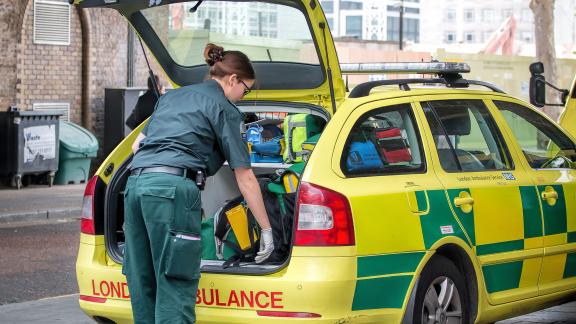Workforce expansion supporting population health needs

Being given the autonomy to recruit to the needs of local populations is a great boost for primary care, writes Dr Rakhi Raj, clinical director of Warrington East PCN, while explaining the approach the PCN took to expand its workforce.
The creation of primary care networks (PCNs) has provided primary care with a fantastic opportunity to work in collaboration with the wider stakeholders and give place-based care to patients. This system-wide approach has been much needed.
To recruit additional roles to support our local population, we chose the Additional Roles Reimbursement Scheme (ARRS) as it has been proven to provide benefits and to enable delivering the NHS long-term plans. Having the autonomy to recruit based on the health needs of the population and the flexibility of employing the right role has been a very positive part of the Network Direct Enhanced Service (DES). It has provided primary care with a much-needed boost to expand the declining primary care workforce while being innovative and creative.
Understanding your network priority
In order to recruit into these roles, it is important to understand your PCN priorities, vision and health needs of your population. In our PCN, East Warrington PCN, we have specifically looked at using the potential of workforce expansion to help address health inequalities and improve long-term outcomes in both physical and mental wellbeing of patients with long-term conditions.
We know that an integrated approach to tackling health inequalities in a coordinated way will improve health outcomes. We made a decision to recruit a health coach and care coordinator. We already have a clinical pharmacist, a pharmacy technician and FCP in post. We had seen the significant positive impact of having appointed a well-time coordinator before the pandemic, whose support to the elderly, vulnerable and shielded patients during COVID-19 was greatly valued and appreciated.
The impact of living with long-term conditions, the unknown and possible long-term psychological impact of COVID-19 can be phenomenal. As a result, the PCN felt strongly that looking at employing a health coach and care coordinator was critical for the future. Our vision is to provide a more coordinated, proactive, planned care to meet the wider holistic needs of our population with overall focus on overall health and wellbeing. The health coach working alongside a social prescribing link worker (SPLW) and care coordinator would help support to keep the patients independent and healthy.
This is a new venture and a totally new concept for the PCN. Understanding the role, setting the priorities and determining the remit of this role is specifically challenging as this has never been done in primary care. We saw this as a brilliant opportunity to take pro-active steps to help develop knowledge, skills and confidence in our population and to build their ‘patient activation’ to improve their health outcomes and quality of life. We have recruited a SPLW, but the model of this employment to this post is slightly different to the other role as we have subcontracted to the local provider with agreed collaborative MoU.
We are now looking at recovery as we emerge from the second phase of the pandemic and while having to deal with usual work pressures in general practice, the planning for the additional roles for the coming years can be seen as difficult. We need to take a strategic view to help deliver the DES and challenges from post-COVID-19 recovery which can be phenomenal. The news roles will complement and support the core primary team in delivering better patient outcomes.
Shared vision
East Warrington PCN has a shared vision of providing placed based care to our patients and addressing health inequalities and impact of long-term conditions proactively. We do recognise that this would need a system-wide response and need engagement of wider stakeholders, but we have started with a small piece of work looking at reducing the impact of health inequalities in cardiovascular disease outcomes by engaging with public health. We are keen to pursue this vision but challenges of balancing daily workload, ongoing impact of COVID-19 and continued recruitment to newer roles can be testing.
Rakhi Raj is clinical director at Warrington East PCN.



